Located in North Africa, Libya is a country that has been subjected to a fair amount of problems – which is why traveling there is ill-advised. Culturally speaking, Libya has a fair amount of spots to see – one of them being the Leptis Magna. Many people want to see the place – but there are not many people that have the courage to do so.
Their instinct, however, is well-grounded. Libya is at high risk for everything, going from pickpocketing and scams to rape and terrorism. So if you were asking yourself how safe is Libya for tourists, the answer is fairly straightforward: not so much. Travel officials advise against choosing Libya as a vacation spot, due to the continuous insecurity occurring throughout the country.
These dangers, however, depend from one point to another – so let this Libya safety guide inform you and advise you on whether or not you should choose Libya as your holiday spot.
Highest Risks You Expose Yourself to When Visiting Libya
Overall Risks in Libya: HIGH
By all means possible, Libya is not very safe for tourists. The country is currently going through inner turmoil, and the effects of the bloody war to rid the country of Gadaffi’s dictatorship are still greatly felt.
The economy went down – which is why the people of Libya are not doing very well either. This causes them to commit crimes that are seen as horrible by most people – but for the locals, they are considered means of survival.
You can read as many Libya safety travel tips as you want – but the truth is that Libya is not very safe for traveling. If you chose Libya as your destination point, the advice would be this: Abort Mission! If, on the other hand, you are already a tourist in Libya, you should pack your bags as soon as you can. It’s impossible to predict what’s going to happen in this country – but from past experience, things do not look very good.
Pickpocketing and Theft Risks in Libya: HIGH
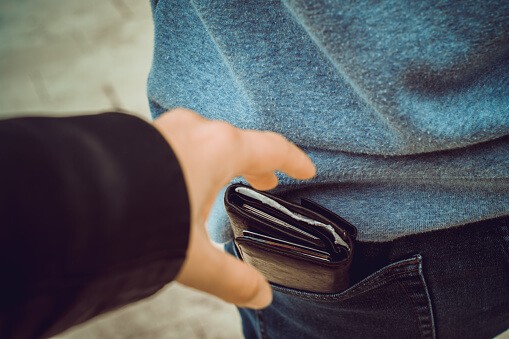
Pickpockets are everywhere on the streets of Libya, and they are seen (or not seen) as often as someone would stop by for a cup of tea at the coffee shop. Both petty and violent crime is a “flourishing business,” so those that look “loaded” will instantly become a target.
Most incidents occur in places with a lot of tourists or people, where they can simply “swab” the goods without being seen. These incidents, however, can also happen if you tend to take hidden or remote alleys as “shortcuts.” If there are no people around, the robbers have fewer chances of being caught – and the worst part is that you may end up with more than your wallet was stolen.
- How to avoid pickpocketing and theft in Libya?
If you are targeted, there’s not much that you can do – except give up what you have. Resisting may only cause you to lose more than your money (such as your life or health), so do not try to antagonize a robber.
However, you can minimize the damage. If you go out in Libya, try to take as little money with you as you can – particularly when it comes to cash. Also, avoid wearing any flashy jewelry or fancy watches. Try putting yourself in the mind of a hungry thief that sees someone wearing a huge diamond necklace. For them, that necklace reads as “trade for food.”
Cameras are also something you might want to be careful about. Indeed, you may want to take as many pictures as you can to have some memories. However, you might want to avoid carrying huge professional cameras that scream “I’m expensive, steal me and sell me!”
Instead, you should go for less expensive cameras – even disposable ones. If it gets stolen, you’ll at least know that you did not just lose a small fortune. Also, aside from your extra cash, leave your important documents at home. Make a copy of your ID and leave the papers at your accommodation. It’s unlikely that you will need them anyway – and you will at least know they are safe.
Scam Risk in Libya: HIGH
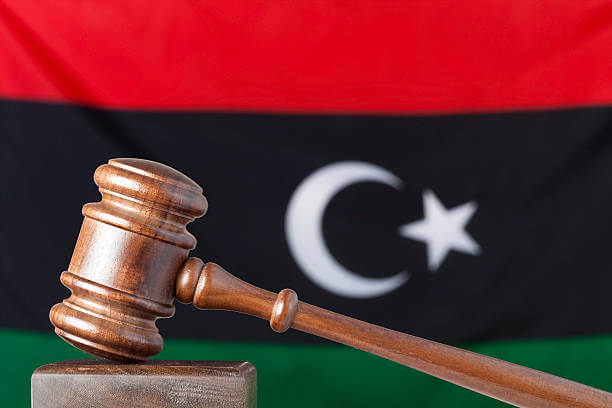
Scammers are a very common occurrence in Libya. In the eyes of thieves, tourists are “people that have enough money to want to go to fancy places” – so it’s obvious that they would want to take advantage of that.
These schemes can take various forms. For example, they may try to distract you in groups as you have just taken money out of the ATM. One of them will ask you something as insignificant as the time while the other will just make your money disappear without even noticing.
Taxi drivers are also commonly known to overcharge tourists for their rides. If they see that a tourist is not familiar with the fares, they will overcharge for the trip. In most of their eyes, “the tourist is too naïve to know anything.”
- How to avoid getting scammed in Libya?
Technically speaking, if you keep your third eye open and don’t believe anything a stranger tells you, then you should be OK. When taking money out of an ATM, make sure that they aren’t any shady people looking over your shoulder.
Ideally, you should take your money out of an ATM that is not too close to the crowd, nor too far. You should have enough space around you so that you can look over your shoulder.
As for the other aspects, you might want to keep yourself informed. Learn about the average cab fares per mile/km – and if a taxi driver asks for too much, you’ll know that they are trying to scam you.
Ideally, you should avoid talking random taxis from the street side. If you can, try booking from a company, or have the hotel call you a cab. It’s safer, and you’ll be less likely to be scammed.
Kidnapping Risk in Libya: HIGH
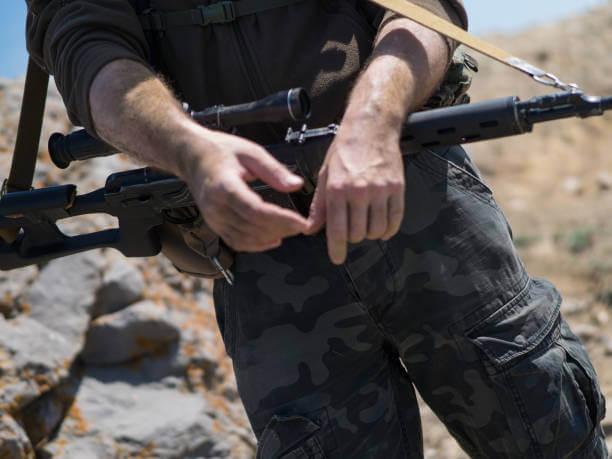
The risk of kidnapping in Libya is very high, particularly in Tripoli and on the coasts around the area. Criminal kidnap a lot of people for ransom, and arbitrary detention is also common among the local militia.
Tourists, in particular, are targeted for kidnapping – by both extremist groups and criminals. According to statistics, only the month of May 2018 recorded 101 casualties – 54 injuries and 47 deaths.
Considering that the county is going through continuous conflict, the authorities can no longer differentiate between friends or foes. Because of this, the crime rate in Libya has risen very much in the past few years.
- How to avoid getting kidnapped in Libya?
This is a general rule, but you should definitely avoid walking alone at night – because this is when most kidnappings take place. If you walk alone on remote alleys, it’s a double killer – because no one will notice if anything happens to you. Day kidnappings also occur – also in remote areas where the chances of receiving help are slim.
Ideally, if you have to walk around, do it in groups. If that is not possible, arm yourself with as many protective measures as possible: pepper spray and self-defense lessons.
If anyone tries to kidnap you, by whatever means possible, try to escape to a more populated area. If the kidnappers see that there are any potential “saviors” around, they are very likely to give up on the plan.
Terrorism Risk in Libya: HIGH
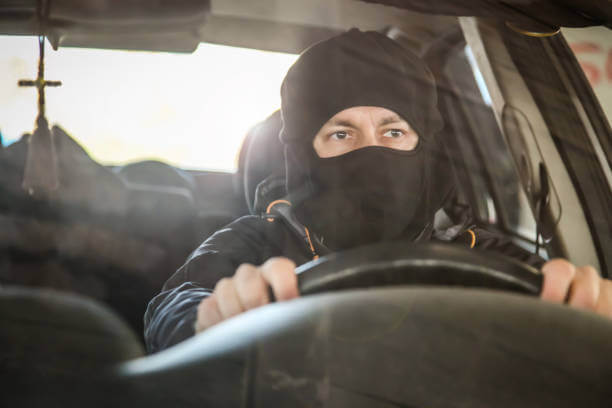
How safe is Libya for tourists when it comes to terrorist attacks? In this case, the answer also looks pretty dark. There are several extremist groups in Libya that carry out terrorist attacks fairly often – one of them being the DAESH group that created a large number of casualties.
Ideally, you should avoid going to Libya – but if you can’t help it, keep a close eye on terrorists. Generally, if an attack were to occur, they would do it where there is a big crowd – so try to avoid overly popular spots as much as you can.
- How to avoid terrorism in Libya?
If you see a person acting suspicious (nervous, continuously looking over their shoulder, and looking as if they are hiding something under their coats), get away from the area as fast as you can. Once you have reached a safe place, call the local authorities and inform them of what you have just seen.
Risks for Women Traveling Alone in Libya: HIGH
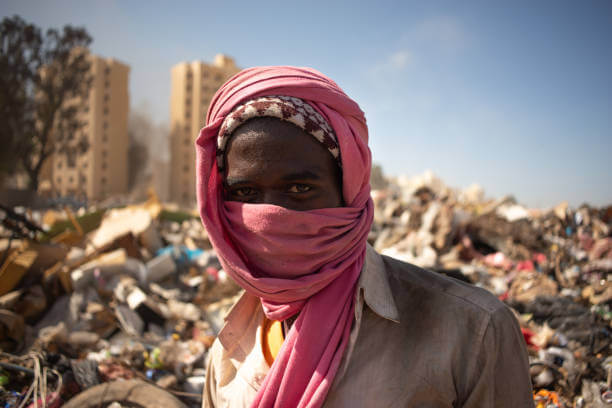
As mentioned above, Libya is not safe at all for women – so the same answer applies to the question: “is Libya safe for solo women travelers?” Well, as we know now, it is definitely not safe. Many women have been known to be sexually assaulted there regardless of the environment.
Most of these incidents happen, however, when these women walk around in less crowded areas – particularly at night. Since these places are the least likely to get witnesses, it’s a very “popular” environment to snatch a target.
- How to avoid crime as a solo woman traveler in Libya?
If you are a solo woman traveler, avoid Libya at all costs. However, if it cannot be avoided, try to read every Libya safety guide that you can. Some self-defense lessons should also be in order.
You may also want to watch what you are wearing. Women in Libya are known to dress in a conservative manner – so if your outfit is very revealing, you may attract unwanted attention.
It may be tempting to explore every nook and cranny by foot, but try to avoid doing that as well. In laces where there are no people to help you, it is very easy for solo women travelers to be assaulted.
Rape Risk in Libya: HIGH
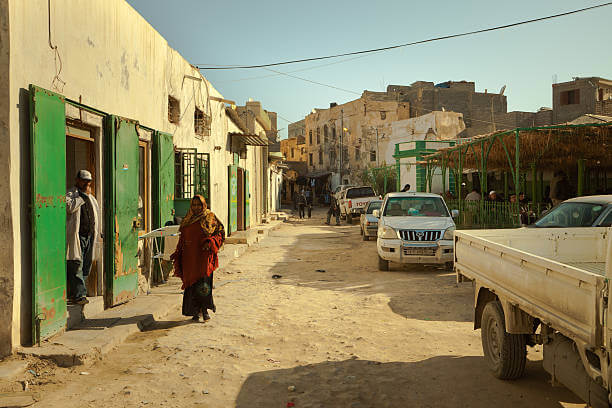
The risk of rape is very high in Libya – so if you were asking around the question “is Libya safe for solo women travelers,” the answer is very plain: no, it is not. Many migrants and tourist women have been raped there over the past few years, making Libya not so safe for women that decide to choose this place as their vacation spot.
These rapes have not only been isolated to remote areas; they occur even as home invasions, particularly in countryside areas where security is not so tight. Women that are traveling alone are also targeted often – so you might want to travel in groups.
- How to getting raped in Libya?
Ideally, to avoid an unwanted scenario, you should always travel accompanied by someone you trust. At the same time, you may want to avoid wearing clothes that are too revealing. It’s alright even if you wear a T-Shirt and pants that go below the knee – but avoid things such as revealing tank tops, short shorts, and miniskirts. These are the things that attract the most attention.
As an extra precaution, make sure that your drink is never left unattended – and if possible, keep your eyes on it as carefully as you can. Someone could easily spike your drink – and then you are really out of options.
Generally, as long as you really care about you’re your surroundings, walk attended by someone, and avoid shady areas, you should be fine.
Risk for People Traveling With Children in Libya: HIGH

Since Libya is a high-risk country, traveling with your children is fairly dangerous. Kidnapping for ransom is a very common occurrence, and children are generally targeted for being “easy prey.” Most kidnappings occur in remote areas, but they can also happen in crowded areas – where it’s very easy to lose yourself among people.
- How to avoid unwanted scenarios?
To avoid unwanted scenarios, you need to watch your children like a hawk. Teach them not to talk with strangers, and you’ll be able to avoid a fair number of unwanted scenarios. Be particularly mindful when walking with them in a crowd, since that is the easiest environment to get separated from your children.
Natural Disaster Risks in Libya: LOW
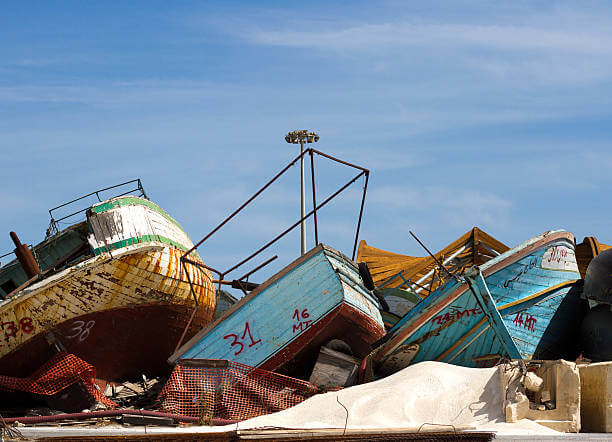
Lybia is one of the safest countries when natural disasters are involved. Not many calamities occur there – apart from the occasional earthquake. Even those, however, are generally of very low intensity.
So, is Libya safe to visit? Yes – but only when it comes to natural disasters. Having the other factors in mind, it is not recommended for you to go there.
Transportation Risks in Libya: MEDIUM to HIGH
Given the fact that the FCO has advised against all travel to Libya, it is recommended that, if you decide to travel there anyway, you take the proper safety measures in order to ensure your security and well-being. This means that with any long-distance trip you have to plan your movements and reassess any of your security arrangements.
Naturally, this involves the employment of a close security protection team, depending on the locations you wish to visit. Keep in mind that any kind of route can get blocked with little to no notice - to major cities and even to airports. It is also highly recommended that you keep a low profile at all times, avoid sharing your itinerary on social media or with people that shouldn't know it - also, diversify your travel routes.

Libya's armed groups are known to mistreat foreign nationals, including journalists. The latter can be subject to intimidation, detentions, attacks, and even kidnapping.
Obviously, road travel throughout Libya is considered very dangerous. On any road you drive, you risk being caught up between two or more groups of hostiles. Moreover, robbers and carjackers are known to operate on the country's roads and carry out attacks on vehicles randomly. Off-road driving is not recommended, as there is the risk of striking unexploded ordnance.
Reportedly, road traffic accidents are rather frequent and usually result in fatalities. The borders with Niger, Chad, and Tunisia are subject to closure without warning - such a thing has happened in the past, due to the activity of the armed groups in the border areas.
Night-Clubs, Pubs, and Bar Risks in Libya: HIGH
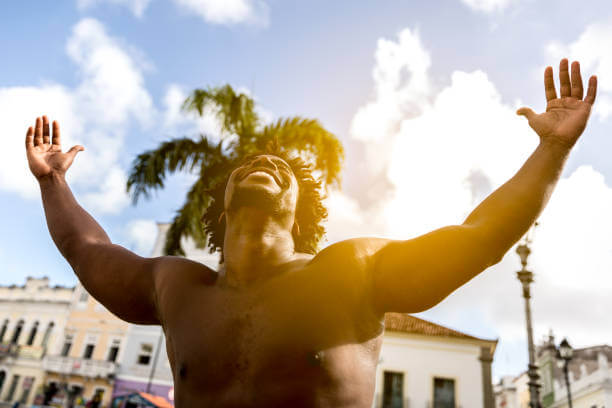
Even if Libya is said to be home to a colorful and interesting nightlife, we advise you to refrain from discovering and exploring it. Tripoli, in particular, is known to have some of the best nightclubs and bars. However, Tripoli - as well as the coastal towns to the West of Tripoli - is also known to have a very high risk of criminal kidnap, mainly for ransom.
Therefore, the last place you'd want to be in is a nightclub, quite dizzy, and with no friends near you. Moreover, local militias are also known to arbitrary detain and/ or kidnap for ransom people throughout Libya. Statistics also show that foreigners are the ones being more and more targeted for kidnappings by both extremist and criminal groups.
In short, we strongly advise you to refrain from visiting any nightclub or bar. If you must do so, then we recommend you choose the one that's located within your accommodation, especially if you want to go there during the night. Clearly, walking through the city during the night is not recommended at all.
Health Risks in Libya
You should avoid getting injured in Libya at all costs! Healthcare is sub-par and cannot be compared to any of the modern standards.
There are severe shortages in medical supplies and personnel, especially for chronic conditions - diabetes. Even though there are a couple of private clinics in Tripoli, you may still be evacuated to Malta or even mainland Europe in case of an emergency.
If traveling to remote areas, keep in mind that medical help may either take long enough to get to you or may be unavailable at all. Moreover, even if your insurance company is able to provide you with an international air ambulance, it may not be allowed to fly over Libya.
In short, be extremely vigilant and cautious. Travel with proper travel health insurance and with enough funds to cover the cost of any treatment, medicine, or emergency evacuation. It is better if you are not referred for treatment - so, do your best to stay out of trouble!

List of Vaccines You Need in Libya
Before traveling to Libya, the CDC recommends that you get the following vaccines:
- Hepatitis A: Spread through contaminated food or water
- Hepatitis B: Spread through sexual contact
- Typhoid: Spread through contaminated food or water
- Rabies: Spread through infected animal bites
- Diphtheria: Spread through respiratory droplets
As long as you get the necessary vaccines, the risks of contracting these diseases are very slim.
Most Dangerous Areas in Libya
- South and West of Tripoli - recent sporadic armed clashes have been reported.
- Tripoli, West of Tripoli - high risk of criminal kidnap.
- Coastal road between Zawiyah and Tripoli - high risk of off-road unexploded ordnance.
Concluding Remarks: Is Libya Safe to Visit?
Libya is not a safe place for tourists. Truth be told, many governments specifically advise against traveling to this place. The social and political turmoil caused by the civil war has turned this country into a dangerous environment – and tourists are generally the ones to suffer the consequences.
If you are not already in Libya, you should seriously consider picking another travel destination. “Abandon all hope ye who enter here” should be posted at every border. Granted, you won’t find peril the moment you enter Libya – but the chances are very high for danger to occur if you stay for longer. Hopefully, our Libya safety travel tips have come of use to you.


